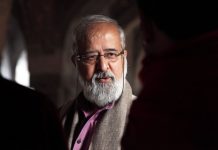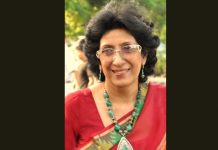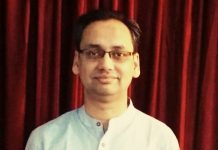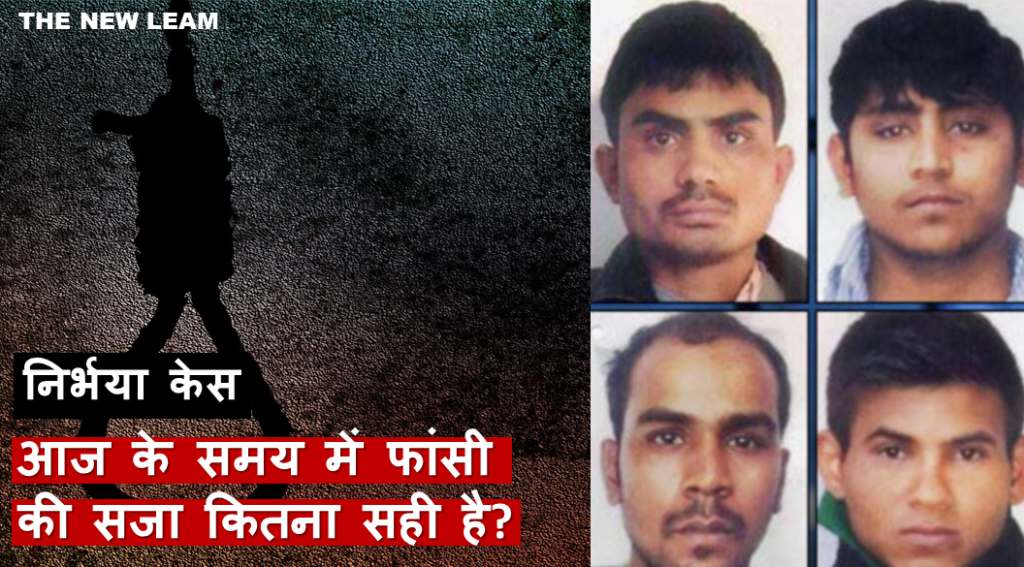Professor Kumkum Roy teaches at the Centre for Historical Studies, Jawaharlal Nehru University, New Delhi. Prof. Kumkum Roy has been working on issues related to gender, politics, social history as well as questions around teaching, and pedagogic reform. In a conversation with The New Leam, Prof. Roy speaks of her own educational trajectory, the challenges to the domain of education in a post-COVID world and the revival of women’s participation in social movements among a plethora of other significant issues.
- As an academic, historian and well-known thinker-activist, tell us a little bit about your own life trajectory, the things that have left the deepest influence on the way you look at the world and the forces that have shaped you into the person you are today?
I was in many ways fortunate to grow up in Kolkata during the sixties and was there till the mid-seventies, moving to Delhi in 1977. My school, Calcutta Girls’ High School, was one where both the population of students and teachers was rather diverse—which enabled us to acquire an understanding and respect for a variety of traditions. We were also lucky to have some extraordinarily dedicated teachers, who took great care to nurture us.
At home too, there were resilient, tough and tenacious, women around, who set standards that were often difficult to emulate.
I was also lucky to study at Presidency College, Kolkata, even in the midst of turbulent times, and, later at JNU, where the Centre for Historical Studies provided space for exploring and even transforming one’s understanding of the discipline. This enabled me to find my way forward, combining my interest in feminism with my academic work, building bridges between the two.
By the late 1970s, discussions around feminism and the women’s movement were also beginning, and being able to listen to these and participate in them was particularly exciting.
Also, I learnt a lot while teaching in various institutions—Gargi College, briefly, Satyawati Co-educational College, for several years, Delhi University History Dept, and the Centre for Historical Studies, JNU. I think each of these influenced and shaped me in a variety of ways.
- We find ourselves in a socio-structural milieu where the Neo-liberal forces have reduced everything into a commodity including the domain of education, how do you look at the commoditisation of education in India and its implications for research and innovation especially in non-technical fields such as the social sciences for example?
This is certainly disturbing. One of the major gains that we have seen in the last few decades has been in the opening up of new areas of research, that do not lend themselves easily to monetization/ commodification. In the social sciences, for instance, we have witnessed pathbreaking studies on marginalized groups, including women, communities, castes, tribes, disabilities, formal and informal workers, on regions that have been neglected, and on sexual orientations. These have often challenged the focus and perspectives of mainstream disciplines. It is unlikely that these studies will receive funding in situations where there will be a pressure to concentrate only on what is perceived to be of immediate relevance and /or profitable/ marketable. The problem is that once certain disciplinary spheres are delegitimized and seem less viable, reviving/ resuscitating them may become extremely difficult. It is also hard to predict what will emerge as priorities within a post-pandemic scenario, whose social and economic implications remain uncertain at the moment. What one would hope for is that inclusivity, in the very broadest sense of the term, be sustained. That would be the bare minimum to ensure humane survival in a sharply and increasingly divided world.
- We have been accustomed to the fact that different political regimes have used school curriculums to further their own agendas and selective telling of history has been at the heart of the matter, how do you look at the recent controversy around the deletion of chapters such as those on citizenship, nationalism or militancy in Kashmir from the school level social science textbooks?
Suggesting that these chapters, and those on caste, gender, popular movements, evolution, and ecology are optional, and will not be important for the examination, as has happened recently, is troubling, to say the least. As the formal school education system is currently under enormous pressure because of the pandemic, it is unlikely that most students will have an opportunity to study these chapters and the issues they raise, which are crucial for critical thinking and informed citizenship. Also, once omitted, it is unlikely that these chapters will be restored, and they could very well slip into oblivion. Besides, we are likely to see more far-reaching changes in school education with a fresh National Curriculum Framework, based on the National Education Policy 2020, and textbooks based on it. It is of utmost importance to ensure that there is space within the formal education system to engage with core Constitutional values, including fundamental rights. In fact, it is a responsibility that we owe to those who will be future citizens of the country.
- We are globally faced with an overarching pandemic that has impacted all domains of society, politics, economy and culture. What do you think must education in the post-COVID world look like, how has the pandemic highlighted the cleavages of caste-class hierarchies as far as accessibility is concerned? At the deeper pedagogic-philosophic level what are the new realisations and understandings that we must acknowledge?
It is difficult to assess the possible short-term and long-term impact of the pandemic at present. Ideally, a post-COVID world should aim for a far more inclusive educational universe than we have at present, strengthening public education, just as we have realized, belatedly, how important public health institutions are for our survival. However, there is nothing to ensure that this will happen automatically—it has to be worked for—systematically, and with a broad vision, neither of which seems to be immediately visible on the horizon. So, there is no reason to assume that this would be an easy transition. In fact, preliminary surveys indicate that the pandemic and the economic crisis that both preceded and has been exacerbated by it has sharpened differences in terms of gender, caste, class, community, disabilities, and possibly regional imbalances. These need to be explicitly acknowledged in order to be addressed. Also, in terms of technology, the digital divide that exists has probably sharpened, within families and households as well as in terms of caste/ class/ gender. If there is going to be an increased reliance on technology for education, then these divides need to be recognized and minimized if not eliminated. Otherwise, disparities in access to education will simply grow.
Turning to the deeper understandings—perhaps one of the major learnings should be in terms of acknowledging and respecting a common humanity—as well as the frailty and vulnerability of human existence. Once again, this will not be easy in a situation where we have seen barriers of all kinds being raised—physical, economic, social, cultural, and the reinforcement of stereotypes—racial, religious, class and others, as short-term responses, often driven by a panic mode. Dismantling these will be difficult, to say the least, but would also be a basic pre-requisite if people are to co-exist with sanity and respect.
- Stifling of dissent and marginalisation of differences has been at the core of Indian politics in the last couple of years, what do you think distinguish people’s resistances/protests and movements in such a scenario and how do you conceive the sustenance and survival of democratic ethos within such a political climate?
I know these have been extraordinarily difficult times, but it is useful to remember that many of these strategies of stifling dissent and trying to manufacture consensus have been at work for a long time, even if not with the same intensity and consistency, and these have sometimes been adopted by governments that may seemingly share little in common. I think what distinguishes the present moment is that we are seeing a global pattern—an acceptance if not celebration of certain expressions of power and intolerance—this is not something I can claim to understand or have an adequate response to. Our best hopes probably lie in strengthening coalitions amongst the marginalized across differences and diversities, but it is useful to recognize that lasting coalitions require understanding, trust and respect, which cannot be conjured up overnight. It can often be a painstaking and slow process, which may not always seem adequate as a response to a dynamic, rapidly changing political environment. These are issues where grass roots activists will have far more to offer by way of insight and strategies than people like me, who have remained on the margins of active interventions.
- Women are increasingly becoming the flag bearers in many recent democratic protests whether it is at JMI, JNU, AMU, anti-CAA resistances across the country and the Shaheen Bagh movement. How do you look at women occupying the centre stage of Indian politics and transforming themselves from passive/docile voters influenced by their male counterparts into active agents of change?
It is true that women, both young and old, have been both visible and even central in many of the movements we saw in recent months, and this involvement is encouraging, inspiring, and humbling. However, I am not sure that this will lead to any immediate transformation in the larger political scenario. We need to remember that women have also participated actively in a variety of other movements, including ones which are apparently divisive. Also, apart from a woman prime minister, we now have had a fair number of women chief ministers, governors etc. This in itself need not necessarily always be transformative of the kind of mainstream politics that we have been witnessing. At the same time, we have also had traditions of autonomous women’s movements, which have increasingly become more complex, moving beyond the concerns of middle-class/ upper caste women to grapple with issues of identities in terms of class, caste, community, sexual orientation, disabilities, ethnicity. One can hope that these will survive and be strengthened in the decades to come, and enable women to assume a transformative role as leaders. That there is this potential is evident from the sustained interventions of women such as Medha Patkar and Aruna Roy, who have consistently attempted to build and sustain connections between grassroots movements and the wider world for decades.
Support Journalism that matters for you https://www.thenewleam.com/support-now/









